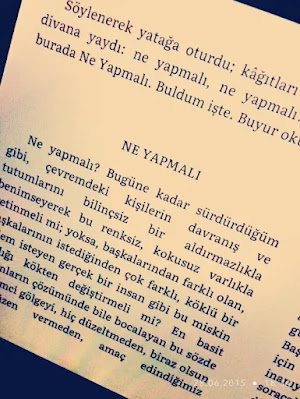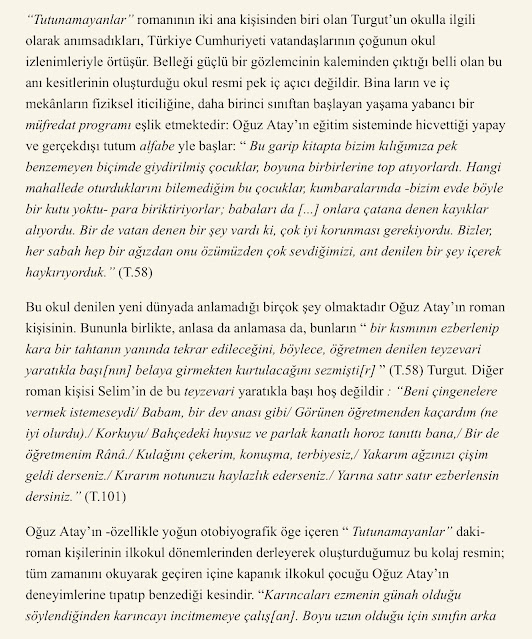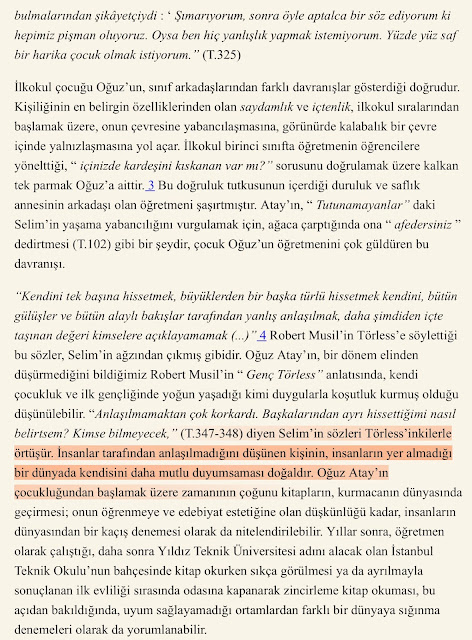Hz. Hasan’ın Muaviye ile imzalayıp Hz. Hüseyin’in onayladığı anlaşma, şunu gösteriyor ki, Hz. Peygamber (s.a.), kendisinden sonra kimseyi imamete vasiyet etmediği gibi, şu veya bu şahıs için de herhangi bir imada bulunmamış, hilfateni Kureyşlilere ait olduğu yolunda bir bir söz (hadis) de söylememiştir. Nitekim ilk halife seçildiğinde Hz. Ebu Bekir. Hz. Peygamber’in kendisini imamlığa geçirmesi suretiyle devlet başkanlığı için imada bulunduğunu öne sürmemişti; sonraki zamanlarda ortaya çıkan sert tartışma ve polemikler sırasında da Hz. Ali de, Hz. Peygamber’in kendisini imamete vasiyet ettiğine ilişkin herhangi bir iddiada bulunmamıştı. Hilafet, icab ve kabul esasına göre halkın veya meşru/tabii halk temsilcilerinin adaylardan birine biat vermesiyle gerçekleşir.
Bu çerçeveden bakıldığında tabii ki Hz. Ali ve evladının yönetime talep olmalarının bir anlamı ve meşru bir temeli vardı ki, siyaset sahnesinde yer alan bütün aktörlerle mukayese edildiklerinde Hz. Ali ve iki evladı hepsinden daha ehil ve liyakat sahibiydiler. Ayrıca eğer inisiyatif Ali ve evlatlarının elinde olsaydı ne hilafet saltanata dönüşür, ne geleneksel mevalilik bir tür Arap kavim üstünlüğüne dayanan bir teamüle kalb olunurdu.
Bir görüşe göre belki Hz. Hüseyin Yezid’e biat etmeyip Medine’de kalmakla yetinecekti, onu kıyama sevkeden faktörlerden biri Kufelilerin ona üst üste mektuplar gönderip Yezid’i devirmeye teşvik etmeleriydi.
Sonunda Hz. Hüseyin Kufe’ye gitmek üzere yola çıktı, yolda ünlü şair Ferazdak’a rastladı. Ferazdak ona geri dönmesini öğütleyip şunları söyledi: “Onların kalpleri seninle ama kılıçları sana karşı olacaktır!” Azibu’l Hicanet denen yere geldiğinde de Hz. Hüseyin karşılaştığı dört atlıya Kufelileri sordu. Ona “Kufelilere bol miktarda rüşvet dağıtıldı, sana destek vermeyecekler” dediler. Hz. Hüseyin, bir kere azmettiği için “Allah’ın dediği olur” deyip yola devam etti. Yol boyunca onu Hür bin Yezid’in komutasında bin kişilik bir ordu takip ediyordu.
Derken bir süre sonra Kerbela denen mevkide Sasani imparatorluğuna son veren Kadısiyye savaşının kahramanı büyük sahabe Sa’d bin Ebi Vakkas’ın oğlu Ömer bin Vakkas, 4 bin kişilik ordusuyla çıkageldi. Hz. Hüseyin’in yanında bir bölümü çoluk çocuk 71 kişi (32 atlı, 40’ı yaya) vardı, şüphesiz bunların iyi donanımlı koca bir orduya mukavemet etmeleri beklenemezdi. Hz. Hüseyin durumun ciddiyetini anlamıştı, Ömer’e üç seçenek sundu: a) İzin verin, Medine’ye geri döneyim; b) Yezid’le konuşarak ihtilafı çözelim; c) Sınır bölgelerinden birine gideyim. Ömer bu teklife sıcak baktı, kendisini bilgilendirdiği Yezid’in Kufe valisi İbn Ziyad da, teklifin işe yarayacağını düşündü ama danışmanı Şimşir bin Zi’lcuşan, ele geçirilmişken Hüseyin’in infaz edilmemesinin vahim hata olacağını söyleyince İbn Ziyad, Ömer’e şu talimatı gönderdi. “Önce Yezid’e biat etsinler. Hüseyin ve arkadaşlarına su vermeyin. Nasıl Osman mahrum kaldıysa onlar da bir damla sudan mahrum kalsınlar. Emirlerim açıktır, teslim olursa bana canlı olarak gönder, direnirse kanını dök, hak ettiği şekilde vücudunu parça parça et, cesedini atlara çiğnet, çünkü o bir asidir ve cemaati terk etmiştir.”
İbn Ziyad’ın verdiği ta’limat İslam hukuku bakımından herhangi bir temele dayanmıyordu. Tamamiyle cahiliye adetlerince sözde meşru olduğunu iddia ettiği Yezid’e karşı kıyam etmesi dolayısıyla Hz. Peygamber’in torununa vahşice bir ceza verilmesini emrediyordu. Hz. Peygamber, canlı veya cansız bedene işkence (müsle) yapılmasını yasaklamıştı. Öyle ki Hz. Ali’den gelen bir rivayete göre, müsle köpeğe dahi yapılamazdı. İbn Ziyad, Hz. Hüseyi’nin öldürülmesiyle yetinmiyor, vücudunun parçalara ayrılmasını ve atlara çiğnetilmesini emrediyordu. Onun “cemaat”ten anladığı Yezid gibi ahlaksız ve kifayetsiz birinin etrafında toplanan çıkarcılar ve korkaklar güruhuydu.
Katliamdan önce gece gizlice Hz. Hüseyin ile Ömer bin Vakkas bir araya geldiler. Taberi ve İbn Esir’in kayıtlarına göre Hz. Hüseyin ona “Ordularını Kerbela’da bırak, seninle Yezid’e gidelim” teklifinde bulundu. Ömer “Bunu yapacak olursa evini yerle bir edeceklerini” söyledi. Hz. Hüseyin “Evini yeniden yaparım” deyince, Ömer “Bütün malımı mülkümü müsadere ederler” dedi. Hz. Hüseyin Hicaz’daki malı mülkü için garanti verdiyse de, Ömer kabul etmedi.
Şehid edilmeden önce 57 yaşındaki Hz. Hüseyin şöyle diyordu: “Ben kimin canına kıydım ki, beni öldürmek istiyorsunuz? Kimin malını gasbettim? Söyleyin, suçum nedir?”
İbn Ziyad’ın talimatı ve Ömer bin Vakkas’ın kararlığı anlaşıldığında, onu Kerbala’ya kadar takip eden Hür bin Yezid, vicdanı infiale uğramış vaziyette “Allah’a andolsun cennetle cehennem arasında seçim yapıyorum, vücudum lime lime olsa da bunu günahlarımın kefareti sayıyorum” deyip, ordudaki görevini bırakıp Hz. Hüseyin’in tarafına geçti, Hz. Hüseyin onun için şefkatle dua etti.
Sonunda Hz. Hüseyin ve beraberindekiler, anlatımı yürekler acısı şekilde şehid edildi. Necefli Sinan bin Enes’in Peygamber torununun başını gövdesinden ayırdı.
Kerbela olayının üzerinde durulması gereken birkaç boyutu var: Bir boyutu Kufelilerin tavır ve tutumudur. Hz. Hüseyin’in davasında yüzdeyüz haklı olduğuna kalpleriyle inanan Kufeliler onun yanında yer almadı. Bir bölümü korktular; bir bölümü iktidarın yanında yer alarak çıkar sağladılar, bir bölümü de “Nemelazım, bana dokunmayan yılan bin yıl yaşasın” dediler.
Bizim tarihimizin temel siyasi kodlarını Hz. Osman’ın şehadetiyle başlayıp “kerb-u belâ”nın toprağında yaşanan dramlar, travmalar tayin etmiştir. Yönetimler de, halk da değişik biçimlerde yüzyıllarca aynı refleksleri göstermektedirler: Bir bölümü korkuyor, bir bölümü zorbalarla işbirliği yapıp çıkar sağlıyor, bir bölümü de “Nemelazım” deyip işine bakıyor. Tarih tekerrür edip duruyor!
Şu sorunun cevabı önemli: Kufelileri Hz. Hüseyin’e destek vermekten alıkoyan sebep neydi?
Belli ki önemli bölümüyle Kufeliler “kalb” ile “kılıç” arasında gidip gelmişti. Kalbiyle Hüseyin’in, kılıcıyla Yezid’in yanında yer almışlardı. Bu ahlaki/siyasi şizofreniydi. Söz konusu şizofreni Kufelilerin kendilerinden sonraki Müslümanların tarihine bıraktıkları miras oldu. O gün bugün müslümanların kahir ekseriyeti Hüseyin için ağlar, Yezid’le iş tutmaya devam etmektedirler.
































